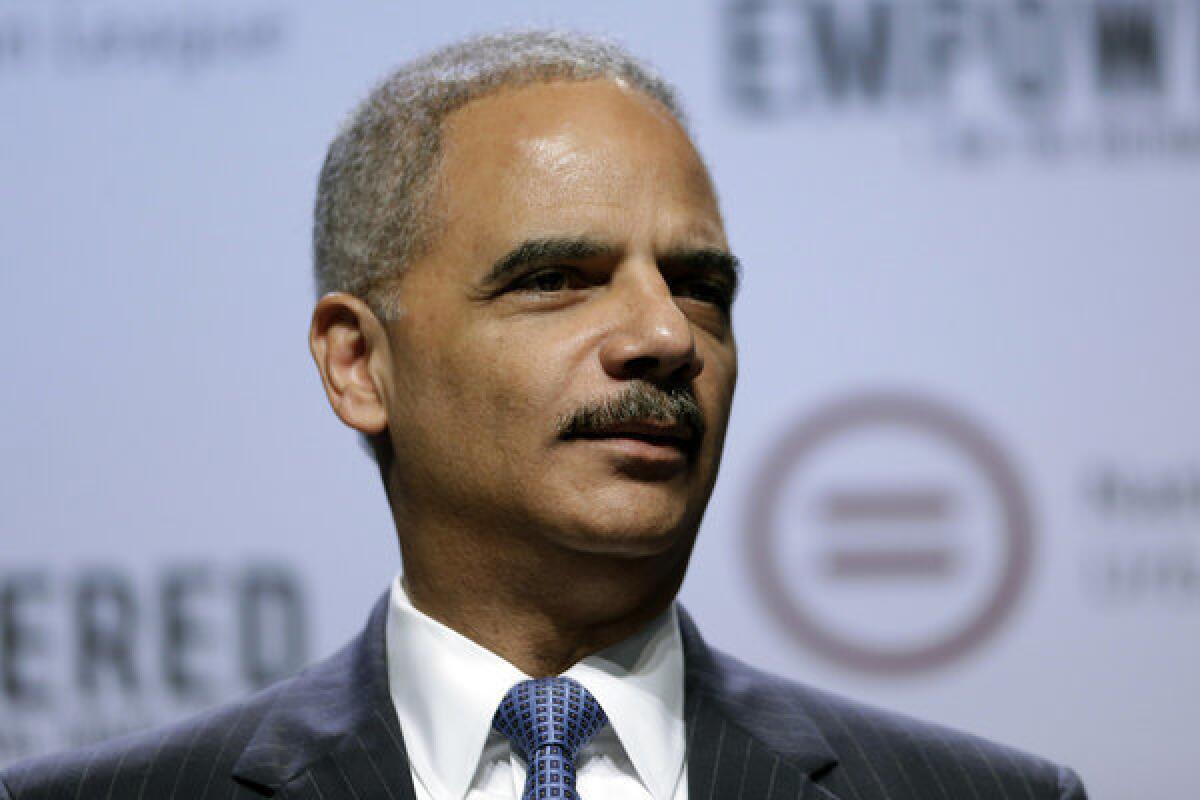Edward Snowden won’t face death penalty in U.S., Holder says

WASHINGTON -- Edward Snowden will not face the death penalty or torture if he is returned to the United States to face espionage charges, U.S. Atty. Gen. Eric H. Holder Jr. has assured his Russian counterpart in an effort to dissuade Moscow from granting asylum to the American fugitive.
In a letter made public Friday, Holder told Russian Justice Minister Alexander Konovalov that the former National Security Agency contractor’s professed fears of facing abuse and possible execution are “entirely without merit.”
“The charges he faces do not carry that possibility, and the United States would not seek the death penalty even if Mr. Snowden were charged with additional, death penalty-eligible crimes,” Holder wrote in the letter dated Tuesday. “Second, Mr. Snowden will not be tortured. Torture is unlawful in the United States.”
Holder also disputed Snowden’s claim that he is unable to travel out of Russia. U.S. authorities revoked his passport on June 22, but Snowden is eligible to get a “limited validity passport” that would allow him to return to the United States, the attorney general said.
Holder’s letter didn’t expressly request that Snowden be extradited, but Kremlin spokesman Dmitry Peskov told reporters Friday that Russia would not be sending Snowden to the United States, the Interfax news agency reported.
If he were to return of his own volition, Snowden would be tried before a civilian, not a military, court and would be accorded the protections of U.S. law, Holder said. Those include the right of legal representation and trial by jury.
“Any questioning of Mr. Snowden could be conducted only with his consent; his participation would be entirely voluntary and his legal counsel would be present should he wish it,” he wrote.
Snowden has been on the run since leaking top-secret details of government surveillance programs to the press in early June.
He first took refuge in Hong Kong, where he disclosed in interviews with Guardian newspaper columnist Glenn Greenwald the existence of the wide-scale surveillance programs. He left for Moscow the day after his passport was revoked and has been stuck at Sheremetyevo-2 airport since his arrival, unable to proceed through passport control without valid documents and also unable to buy air tickets for travel elsewhere.
Snowden faces three felony counts of espionage and theft. Russian officials have previously said they won’t extradite him because of his claimed fears of mistreatment. But neither have Kremlin officials warmly welcomed him to their fold. President Vladimir Putin said earlier this month that Snowden was welcome to stay in Russia, but only if he ceased making disclosures that were detrimental to “our American partners.”
ALSO:Egypt’s Morsi charged with espionage; tension mounts
Spain train derailment: Driver detained, toll lowered to 78
Experts say Brazil is unlikely to be ready for 2014 World Cup
Villeneuve reported from Washington and Williams from Los Angeles.
More to Read
Sign up for Essential California
The most important California stories and recommendations in your inbox every morning.
You may occasionally receive promotional content from the Los Angeles Times.











